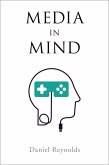For decades after its invention, television was considered by many to be culturally deficient when compared to cinema, as analyses rooted in communication studies and the social sciences tended to focus primarily on television's negative impact on consumers. More recently, however, denigration has largely been replaced by serious critical consideration of what television represents in the post-network era. Once derided as a media wasteland, TV is now praised for its visual density and complexity. In the last two decades, media scholars have often suggested that television has become cinematic. Serial dramas, in particular, are acclaimed for their imitations of cinema's formally innovative and narratively challenging conventions. But what exactly does "cinematic TV" mean? In
Cinematic TV, author Rashna Wadia Richards takes up this question comprehensively, arguing that TV dramas quote, copy, and appropriate (primarily) American cinema in multiple ways and toward multiple ends. Constructing an innovative theoretical framework by combining intertextuality and memory studies,
Cinematic TV focuses on four modalities of intermedial borrowings: homage, evocation, genre, and parody. Through close readings of such exemplary shows as
Stranger Things,
Mad Men,
Damages, and
Dear White People, the book demonstrates how serial dramas reproduce and rework, undermine and idolize, and, in some cases, compete with and outdo cinema.
Dieser Download kann aus rechtlichen Gründen nur mit Rechnungsadresse in A, B, BG, CY, CZ, D, DK, EW, E, FIN, F, GR, HR, H, IRL, I, LT, L, LR, M, NL, PL, P, R, S, SLO, SK ausgeliefert werden.









